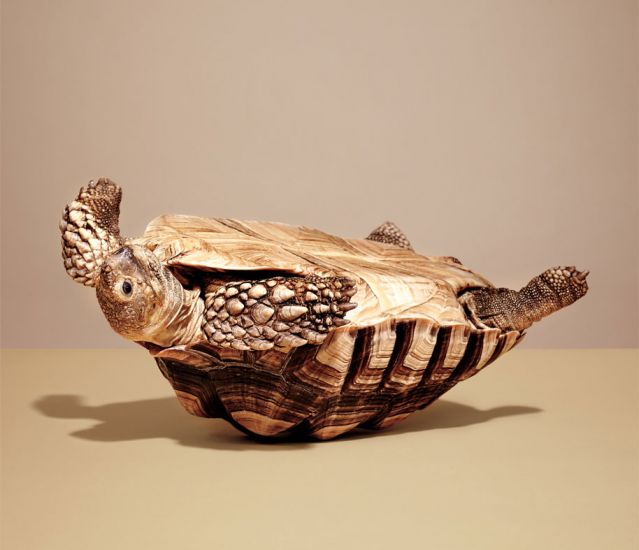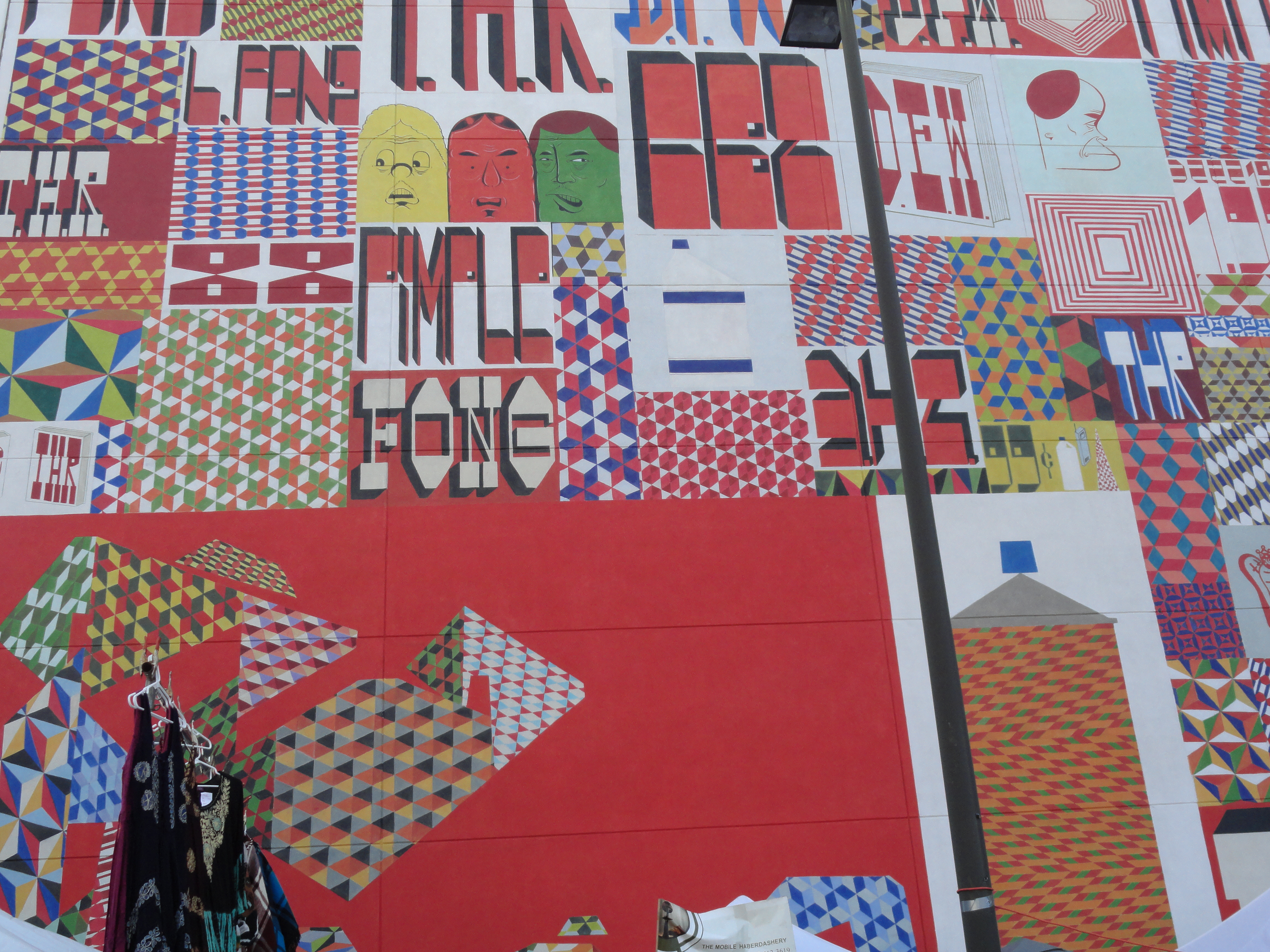In defence of the lowercase b
Black is a refuge. We can use it as a space of wonder and repair. We can put it to use to make demands—for respectability and to be seen.

Being attentive to the movements and uses of race is important when deciding whether to capitalise race or not. The uppercase B for Black appears to have snuck up on Africans. Like a lot of black culture, the capital B comes to our shores from across the Atlantic Ocean. It is a respectable B that demands white seeing because white must remain uncapitalised. It is a historical reckoning pointing to the hegemony of whiteness. I get this project and I sign up to its work.
Yet. I am attached to the small b. It is the b of Sylvia Wynter, Bessie Head, James Baldwin, Langston Hughes, Chinua Achebe, Miriam Tlali, Marlon Riggs, Norman Duncan, Aimé Césaire, Sylvia Tamale, Audre Lorde, Édouard Glissant, Frantz Fanon, Paul Gilroy, bell hooks, and Bhekizizwe Peterson. These are some of the people from whom we learned about race and racialisation. What does it mean to abandon their teachings at the altar of respectability? In a different context, Christina Sharpe writes about her suspicion of the term ‘black excellence’. “I am annoyed by the phrase Black excellence. It doesn’t do the affirming work that many people who deploy it imagine that it does. Zakiyyah Iman Jackson gets it precisely right when she tells me that ‘Black excellence’ is the answer to a racist question.”[1]
This is a disquiet that I share with her. What does it mean to self-define in an extroverted way—for one’s racist audience rather than for oneself?
For me, black with a small b has always been buoyant, shape shifting, fugitive, creative, moving, liquid, and evasive. It is a mournful formation which recognises the weight of racialisation, but it is simultaneously riotous because it is refusal too. An unruly middle finger rather than the last word. The capital B feels calcified. The veritable last word. It is unable to hide and evade. In other words, it appears incapable of doing the work of blackness. Survivance and livingness. Like Gladys Knight stumbling upon Boys to Men’s End of the Road, when I read La Mar Jurelle Bruce’s thoughts on his uncapitalised b, I felt a great sense of relief akin to recognition. Yes! Finger clicks. Bruce explains his use of the small b.
“I use the lowercase b because I want to emphasize an improper blackness: a blackness that is collectivist rather than individualistic; a blackness that is ‘never closed and always under contestation’; a blackness that is ever-unfurling rather than rigidly fixed; a blackness that is neither capitalized not propertized via the protocols of Western grammar; a blackness that centers those who are typically regarded as lesser and lower cases, as it were; a blackness that amplifies those who are treated as ‘minor figures’ in Western modernity.”[2]
It clicks. It resonates. Black is not only a description. It is work. It is pleasure. A tributary. Astride and rarely ever just one thing.
I turn to black for refuge. Not to be seen by whiteness but to vanish from its panopticon. To remain out of sight from the blue-eyed gaze. And so, when I submit my work to journals and am told that the publication’s policy is to capitalise black, the respectability which I am compelled to adorn does not resonate. It stultifies and moves against my intent and the spirit of blackness that I work with. It does not capture the thing I feel on the dance floor and my frolics in the ocean. Where is the soul in the uppercase B?
The lowercase b is not oblivious to its environment. In its movement across space and time, it builds solidarities, it rubs against others, and surrenders itself to being remade in relation. Since it is founded in heartache, it sees brutality and builds bonds created in solidarity. The small b is in pain when genocide occurs in Palestine, Namibia, Rwanda, the Congo, and Germany. Its antennas are attuned to the workings of whiteness. It utilises its cellular knowledge of survival and resistance to call out atrocities done to similarly oppressed people and beings. It chants— “from the river to the sea”. It sees beyond itself because it refuses the seduction of atomised individualism.
The small b is wily. It has deep reserves that it builds beyond the gaze of whiteness. Strategic sharing of its empathy and skills does not deplete the small b. Care is encoded in the small b.
Perhaps, instead the single use of b, we should opt for multiple possibilities. Capitalised, big, and respectable. Small, mixed, in motion, and boundless. There are moments when Black needs to tower at the pulpit, political rally, the lectern, and assert itself in response to the oppressive work of whiteness. Sometimes, one needs to be seen. This is important. But the black I most need is that which is out of reach of whiteness. The black of contradictions that evades arrival at final truths. This is the black of Nonqawuse and Sarah Baartman to whom we return with questions across the centuries. This black has no resolution.
On the African continent, the Caribbean, Brazil, United States and elsewhere, even if momentarily, blackness plays outside of the glare of whiteness. In a clearing where we speak in native tongue and dance in a boundless rhythm. In this black clearing, since there is no audience, there is no need for translation. A naked streak in the water. A playful, creative, and mobile blackness that is evasive and refuses pinning down, possession and enclosure. Blackness that multiplies in the ancestral realm.
The black that inspires and enfolds me is the blackness that gives us soaring jazz notes. Hugh Masekela’s piecing trumpet. The cinematic accomplishment of Moonlight. Zim Nqawana, Abdullah Ibrahim, and Fela Kuti. The devastating poetry of Keorapetse Kgositsile and Kamau Brathwaite. Toni Morrisonian and Bessie Headian literature. The lightening feet of Pele, the liquid motion of Simone Biles and the resolute spirit of Caster Semenya on and off the track. The writerly hustle of Zukiswa Wanner and Nick Mhlongo. The deformative lyric of Bob Marley, the wail of the Wailers, the multivocal choir behind Sankomota and Ray Phiri. The voices of Angélique Kidjo, Oliver Mtukudzi and Bongeziwe Mabandla. Black as ricochet and ripple. Streaking, supple, electric, queer. Donna Summer, Brenda Fassie and RuPaul. Irreverent dance. The category is! A making and unmaking.
As Black capitalises and swells in size, might we keep space for black motion encoded in the small b?
[1] See Note 56 in Ordinary Notes, 2023, 91.
[2] See How to go mad without losing your mind. Madness and black radical creativity. 2021, 6.










